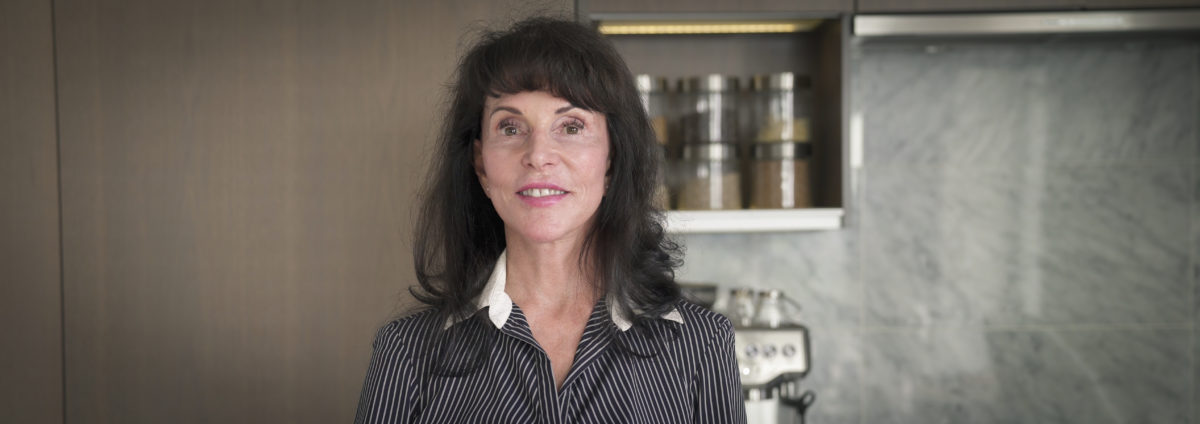Lara Pizzorno is the author of “Your Bones: How You Can Prevent Osteoporosis and Have Strong Bones for Life – Naturally” and a member of the American Medical Writers Association with 29 years of experience specializing in bone health.
Recently we asked Lara if she would help us provide a series of short, ongoing videos to help you (our customers and readers) stay up to date on the latest facts and science related to bone health.
In this latest video, Lara talks about the only calcium that has ever been shown to increase bone density. Lara discusses the scientific studies backing this calcium and what makes it so different. Watch the video below (or read the transcript provided) and let us know what you think in the comments.
Hello, I’m Lara Pizzorno the author of “Your Bones” and I’m here today to share some information with you that I hope will help you have healthier bones.
Today I’d like to talk to you about the question about whether absorbing calcium by itself or even calcium along with vitamin D is sufficient to help you build enough bone that you will not be losing bone overall. And the answer to that is no. Calcium by itself even if a company has vitamin D has only been found to reduce the rate at which bone is lost, but not to outpace bone loss and produce an increase in new bone being laid done.
There’s only one type of calcium supplement that has ever been shown to outpace bone loss and produce such an increase bone deposition and that we actually build more bone than we are losing and that is AlgaeCal, which contains a lot more than just calcium.
Actually there are 4 different kinds of plant-sourced calcium in AlgaeCal, which is derived from a special type of marine algae called Lithothamnion superpositum (or Algas Calcareas as the locals call it) because this algae is so rich in calcium. But another key point here is that this special marine algae also contains a whole host of other trace minerals that are essential to building healthy bones. But back to our current topic.
What the research shows of calcium by itself or calcium with vitamin D can do to prevent bone loss has been summarized in an exhaustive meta-analysis of randomized trials that altogether involve 63,897 subjects, 50 years of age or older. Most of whom were healthy postmenopausal women whose average age was 67.8 years. This meta-analysis included 23 trials involving 41, 419 subjects in which they measured changes in bone mineral density (BMD) and what they found is that calcium and vitamin D both slow bone loss, but they do not increase bone mineral density overall. In not a single one of these studies did calcium or calcium combined with vitamin D increase bone mineral density over the study period. Although in the 17 trials that were looked at involving bone mineral density, including 52,625 postmenopausal women that looked at fractures and outcome, supplementation was associated with a 12% risk in all types of fractures, so this is helpful. But the overall finding was that with or without vitamin D calcium supplementation was only associated with a “reduced rate of bone loss, a yearly age-related decline of at least 1% of BMD is what is expected when taking only vitamin D and non plant sources of calcium.” In the trials that were reported on bone mineral density, these were the trials involving 41,419 subjects, both calcium and calcium plus vitamin D were associated with a reduced rate of bone loss of .054 percent at the hip and 1.19 percent in the spine. In other words, instead of losing the typical 1% of bone mineral density each year that we’ve been seeing in women after menopause and amount of bone loss than can increase to more than 2% per year during the menopausal transition and also seen in men as their testosterone levels drop typically in the late 60’s – study subjects who were taking calcium and vitamin D lost bone at a slower rate.
But the key point here is: they lost bone.
Has any form of supplemental calcium been shown to increase bone mineral density so that instead of losing at least 1% and maybe more of bone mineral density each year we can actually start building more bone than we lose during the remodeling process that goes on throughout our lives and is healthy and necessary?
The answer is a resounding yes and the research confirming it is the topic of our next video so I hope you’ll tune in then. Thanks for tuning in today.
Sources
Tang BM, Eslick GD, Nowson C, et al. Use of calcium or calcium in combination with vitamin D supplementation to prevent fractures and bone loss in people aged 50 years and older: a meta-analysis. Lancet. 2007 Aug 25;370(9588):657-66. PMID: 17720017





Shereen elkady
March 30, 2023 , 5:29 amThere is no mention about refrences.